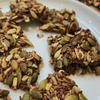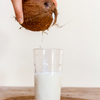Are Digestive Enzymes Causing Your Gut Issues? (A Question Your Gut Specialist Should Be Asking)

If your gut specialist hasn’t already posed the question, Are digestive enzymes causing your gut issues?, it’s time for you to either bring it to their attention or get a new gut expert.
Seriously, this is how important digestive enzymes are to gut health.
(If you need a new practitioner, try Googling ‘naturopath specialising in gut health’ or even ‘best naturopath near me’ – you never know what hidden gems you’ll find)
Let’s be clear though…
We’re not wondering if your gut issues are caused by too many digestive enzymes – that’s not usually an issue. We’re considering whether you have a LACK of digestive enzymes. And if you have gut issues, it’s highly likely you do.
If you’re reading this and wondering what on earth are digestive enzymes, that’s okay as I’m here to help. Let’s look at the facts.
Your digestive ‘machine’
Gut bacteria gets a lot of media attention these days, and it’s often the first thing people think of when uncomfortable digestive symptoms arise (we can thank prolific probiotic marketing for this). While gut bacteria are key players in metabolism, nutrient absorption and protection from unwanted yeasts, parasites and bacteria (1), your digestive system is a complicated machine. It also requires bile, acids and enzymes to function optimally.

What are enzymes and why are they important?
Enzymes are proteins that control chemical reactions.
Digestive Enzymes control chemical reactions related to food, specifically the breakdown of food into their building blocks, e.g., protein present in fish is broken down into amino acids.
In the human body, over 3,000 enzymes have been identified, but some gut specialists believe we may have anywhere from 50,000 to 70,000 enzymes (2). Each of these enzymes are specific in their action and interact in a 'lock and key' way. In the case of digestion, an example of this is the enzyme Protease (the lock) and its specific interaction with protein (the key) (3).
Where do they work?
Enzyme reactions occur alongside the cells lining your gut wall. Their action starts in your mouth, which is why it’s not recommended you inhale food. Instead, eating with mindful awareness is much better for your digestion as it supports the optimum functioning of your digestive enzymes.
Mouth
- Your saliva contains amylase and lipase enzymes that begin breaking down starch/carbohydrates and fats, respectively.
Stomach
- Protease (pepsin) and hydrochloric acid begin breaking down proteins.
Intestines
- The pancreas joins the party and supplies pancreatic enzymes in the form of protease (trypsin) to help protein breakdown, lipase for fats, and amylase for starches and carbohydrates.
- Your intestines contain more enzymes, including peptides, which continue breaking down protein and carbohydrate/sugar-specific enzymes, including sucrase, lactase and maltase.
-
Bile from your liver is also present in the small intestine to break down fat globules into smaller droplets.
Symptoms and consequences of digestive enzyme insufficiency
The signs and symptoms of digestive enzyme insufficiency can be different for everyone, but if your gut specialist knows your body well, they’ll be able to quickly identify if this is the case for you.
If you’re on the waiting list to see a gut specialist though, or if you’re in the category we spoke of earlier where you need to Google ‘best naturopath near me’, here are the most common symptoms and consequences of insufficiency, so that you know what to talk with your new health practitioner about:
-
Nutritional deficiencies: These occur due to an inability to absorb fats and certain vitamins and minerals properly.
-
Indigestion, diarrhoea and a myriad of other digestive symptoms: These arise due to difficulty digesting carbohydrates, proteins and fats (4).
-
Small Intestinal Bacterial Overgrowth (SIBO), a condition that commonly presents as burping, reflux, bloating, fatigue and constipation,
-
Irritable Bowel Syndrome (5).
What to do about it?
If you resonate with these symptoms, or have a gut feeling that something else beyond what your gut specialist has said is going on (I always recommend you TRUST your gut feeling), then it’s time to get professional support, in Bloated to Body Confident, so you can optimise your enzymes.
Taking a digestive enzyme isn’t the end of the story though. It’s important you work with your practitioner to understand the cause of your low enzymes, as addressing this is key to long term gut healing. In the meantime, you can begin supporting your enzymes at home by having apple cider vinegar, fresh papaya or pineapple with meals. Yum!
What is Bloated to Body Confident? It's a course that helps bloating, IBS and SIBO sufferers live a normal life full of freedom and confidence, without food anxiety and digestive discomfort, with the complete step-by-step system to heal your gut from the root cause.
In Bloated to Body Confident I share the step-by-step strategy for finding your root cause, comprehensive functional and diagnostic testing, personalised dietary advice, holistic support, effective treatments and sustainable solutions, empowering evidence-based information in a clear action plan.
-
Posted in
Gut Health, IBS, SIBO






